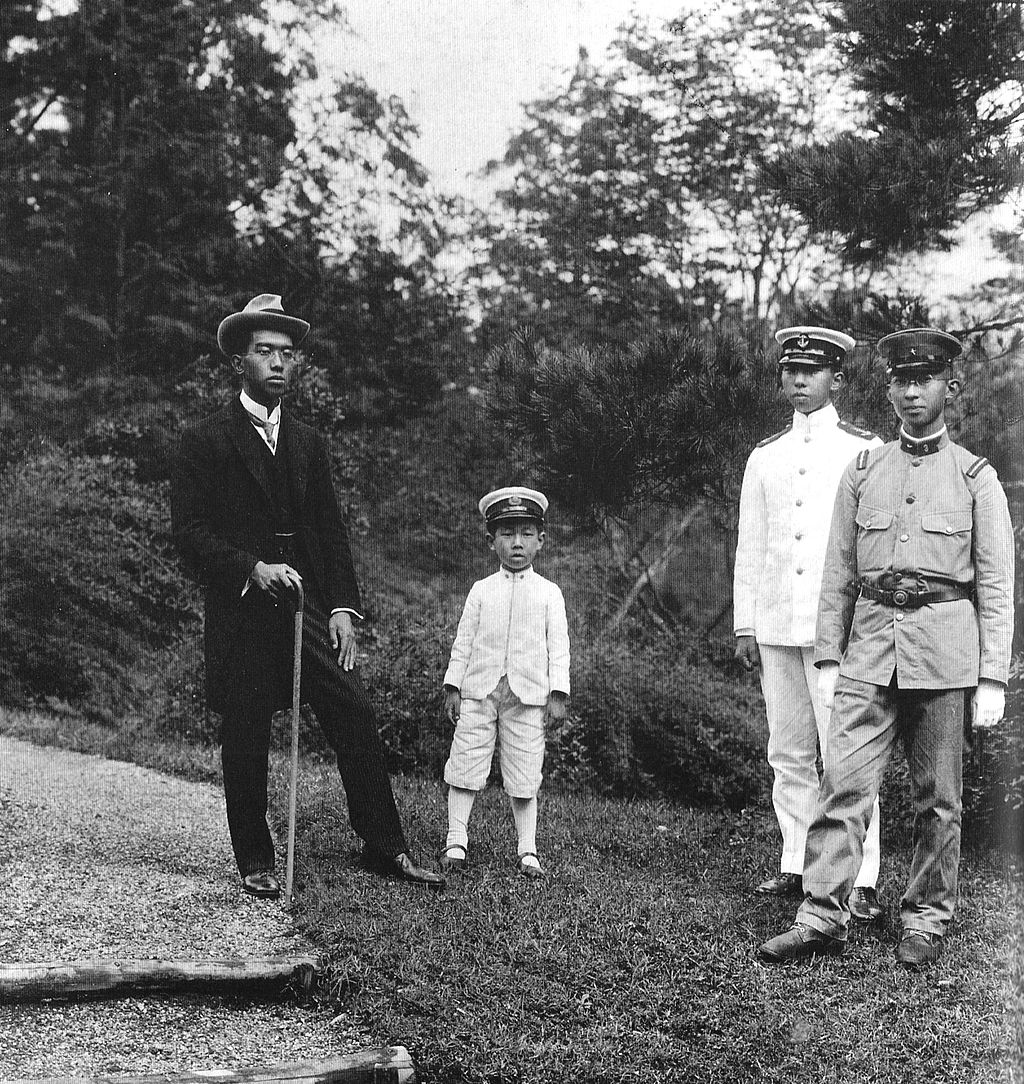by Susan Flantzer © Unofficial Royalty 2019

Empress Teimei of Japan; Credit – Wikipedia
Empress Teimei is the posthumous name of the wife of Emperor Taishō of Japan also known as Yoshihito. Born Lady Sadako Kujō on June 25, 1884, in Tokyo, Japan, she was the fourth daughter of Prince Michitaka Kujō, head of the five senior branches of the Fujiwara clan and a court noble and politician who served as a member of the House of Peers. Sadako was educated at the Kuroku Girls School which later became the Gakushuin Women’s College, part of the Gakushūin School Corporation, established to educate the children of Japan’s nobility. She grew up as a healthy child in a country atmosphere.
Emperor Meiji’s son and heir Yoshihito, the future Emperor Taishō, had cerebral meningitis when he was three weeks old and this affected his health and his mental capacity, including a speech disorder and difficulty walking, for the rest of his life. Due to his health issues, he was often unable to continue his studies, and he was a poor student in areas requiring higher-level thinking. Because of Yoshihito’s diminished mental capacity, Emperor Meiji wanted an intelligent, articulate, and dignified wife for his son, and he found those qualities in Sadako. On May 10, 1900, 15-year-old Sadako married 20-year-old Yoshihito and became the Crown Princess of Japan.

Yoshihito in 1900, on his wedding day; Credit – Wikipedia

Sadako on her wedding day in 1900; Credit – Wikipedia
The couple resided in the newly constructed Akasaka Palace in Tokyo, now the official accommodation for visiting state dignitaries. In 1901, when Sadako gave birth to the first of her four sons, Prince Hirohito (the future Emperor Shōwa), she became the first official wife of a Crown Prince or Emperor to give birth to the official heir to the throne since 1750. Sadako and Yoshihito had a happy marriage as evidenced by Yoshihito not taking any concubines, breaking with hundreds of years of imperial tradition.

Akasaka Palace; Credit – https://upload.wikimedia.org/wikipedia/commons/thumb/4/45/State_Guest_House_Akasaka_Palace_main_entrance.jpg/1920px-State_Guest_House_Akasaka_Palace_main_entrance.jpg
Sadako and Yoshihito had four sons:
- Hirohito, Emperor Shōwa (1901 – 1989), married Princess Nagako of Kuni, Empress Kōjun, had two sons and five daughters including Emperor Akihito
- Prince Chichibua (1902 – 1953), married Setsuko Matsudaira, no children
- Prince Takamatsu (1905 – 1987), married Kikuko Tokugawa, no children
- Prince Mikasa (1915 – 2016), married Yuriko Takagi, had three sons and two daughters

Sadako’s four sons in 1921: Hirohito, Mikasa, Takamatsu, and Chichibu; Credit – Wikipedia
Emperor Meiji died on July 30, 1912, and Yoshihito became Emperor of Japan. He is known by his posthumous name Taishō. Because of Emperor Taishō’s weak physical and mental condition, Sadako exerted a strong influence during his reign. Emperor Taishō was kept out of public view as much as possible because of his mental incapacity. Within a few years, it became apparent that he could not carry out any public functions, participate in daily government matters, or make decisions. This was all left to his ministers and his son Crown Prince Hirohito. Finally, Crown Prince Hirohito was named Prince Regent on November 25, 1921.

The Empress with her son Crown Prince Hirohito during the 1922 visit of Edward, Prince of Wales (the future King Edward VIII of the United Kingdom) to Japan; Credit – Wikipedia
Emperor Taishō died of a heart attack on December 25, 1926, at the age of 47 and his son Hirohito succeeded him as Emperor. After her husband’s death, Sadako’s title became Dowager Empress (Kōtaigō) which means “widow of the former emperor”. The Empress strongly objected to Japan’s involvement in World War II, causing a conflict with her son. From 1943, she worked secretly with her third son Prince Takamatsu to bring about the downfall of Prime Minister Hideki Tōjō who was eventually sentenced to death for war crimes and hanged in 1948.
The Dowager Empress with her grandson Crown Prince Akihito, the future Emperor Akihito; Credit – Wikipedia
On May 17, 1951, the Empress died at Omiya Palace in Tokyo at the age of 66. She was buried near her husband Emperor Taishō at the Musashi Imperial Graveyard in Hachiōji, Tokyo, Japan.

Burial Site of Empress Teimei; Credit – Wikipedia
This article is the intellectual property of Unofficial Royalty and is NOT TO BE COPIED, EDITED, OR POSTED IN ANY FORM ON ANOTHER WEBSITE under any circumstances. It is permissible to use a link that directs to Unofficial Royalty.
State of Japan Resources at Unofficial Royalty
- State of Japan Index
- Japanese Emperors
- Japanese Imperial Burial Sites
- Japanese Imperial Dates
- Japanese Imperial FAQs
- Japanese Imperial Weddings
- Line of Succession to the Chrysanthemum Throne
- Profiles of the Japanese Imperial Family
Works Cited
- En.wikipedia.org. (2018). Empress Teimei. [online] Available at: https://en.wikipedia.org/wiki/Empress_Teimei [Accessed 24 Oct. 2018].
- Flantzer, S. (2018). Emperor Taishō of Japan (Yoshihito). [online] Unofficial Royalty. Available at: https://www.unofficialroyalty.com/emperor-taisho-of-japan-yoshihito/ [Accessed 24 Oct. 2018].
- Ja.wikipedia.org. (2018). 貞明皇后. [online] Available at: https://ja.wikipedia.org/wiki/%E8%B2%9E%E6%98%8E%E7%9A%87%E5%90%8E [Accessed 24 Oct. 2018].
